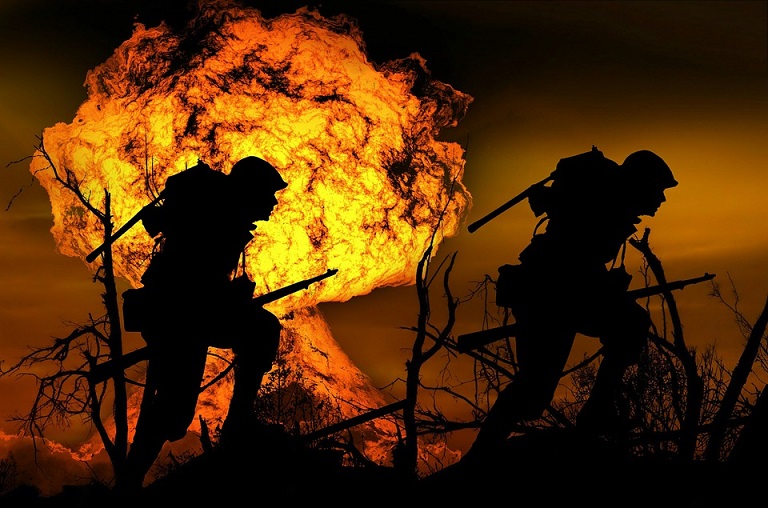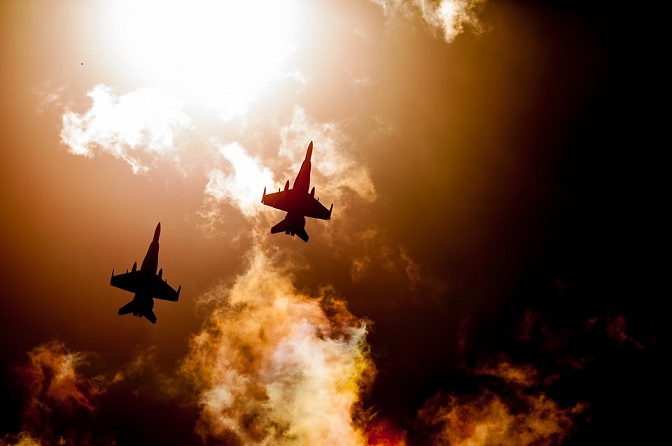In reality this is not a war between Ukraine and Russia but one between the United States and Russia and, more strategically, between the United States and China. Its possible outcomes will necessarily be shaped by the roles played by these powers, its true protagonists.
 Juan Diego García
Juan Diego García
Ukraine is just a pawn that is paying a high price for its role in this conflict. For their part, the European Union and other lesser allies of the United States are also proving to be secondary pawns although, given their size – especially the EU – the problems this commitment generates in their heart are not small.
Support for the United States and the commitment within NATO are generating certain differences between key countries, throwing doubt on their internal cohesion and the possible evolution of these contradictions. It is possible the subjugation of Europeans to US strategy will deepen or, conversely, that it will end up solidifying a certain degree of European independence from Washington.
Ukraine’s role is explained above all by its enormous weakness and the very right-wing nature of its leaders (in some cases openly inspired by Nazism), swamped by flagrant cases of corruption and apparently with little ability to manage its internal problems born of the country’s multi-ethnic composition.
Could the so-called Russian-speakers who embrace the Orthodox Church of Moscow be up to 30% of the population?
 In addition to them, brushes with other ethnic and religious minorities are not small either, all of which complicates the government’s management.
In addition to them, brushes with other ethnic and religious minorities are not small either, all of which complicates the government’s management.
Although Western propaganda on the war’s progress announces almost daily that Kyiv is winning and Moscow is retreating, some recent events appear to show that, at least partially, these triumphalist announcements are far from true and are just typical war propaganda.
Ukraine’s government does not seem to be the best military strategist one could mention and the role of Western powers’ military and intelligence services appears critical in Kyiv’s decision-making (the United States and the United Kingdom, especially). Germany’s case is very significant: its weak (and mediocre) government does not have – judging by the polls – the solid support of the population and there is no lack of authoritative voices like that of Oscar Lafontaine who, in a recent interview, put it bluntly: Berlin’s decision is completely wrong and his country needs to promote a diplomatic outcome and, above all, end its relationship of subjugation to the United States.
The war’s role in the economy allows us to see how the current neoliberal model that has been managing unsuccessfully the severe crisis of 2008 (it still has not been overcome fundamentally) and the covid-19 pandemic works. It is scandalous that from all these events (and the war in Ukraine is central in this respect) the West’s big centres of economic power are harvesting astronomical profits.
 Meanwhile, the majority of the central countries’ populations are seeing their incomes reduced and the threshold of insecurity of all types raised.
Meanwhile, the majority of the central countries’ populations are seeing their incomes reduced and the threshold of insecurity of all types raised.
The role of large businesses linked to oil, gas and food stands out in this scenario, no less than the banking industry’s huge profits, just as happened with the pandemic, which along with the millions of deaths and people affected by covid also produced gigantic profits for the pharmaceutical consortia.
The application of economic sanctions on Russia has had some impact on its economy, which has been resolved through new customers on the planet. For Western strategists the panorama is disappointing since its measures against Russia have had a severe impact on their own economy, hitting Europe hardest (due to its close commercial links with Russia).
Europe needs Russian oil and gas for its economy to function, as well as its minerals and agricultural products.
The economic measures against Russia favour some minority groups (within the Western big bourgeoisie) but little or not at all the bourgeoisie in general and less broad swathes of the population; including, of course, the Unites States itself.
Ultimately, the reality of a world in which the hegemony of the traditional metropolises (especially the United States) is tending to decline precipitately is revealed, while the new powers (the BRIC countries, particularly China) gain ground with each day that passes, displacing the West.
It is not by chance that the Unites States, NATO and its other lesser allies have not gained real backing from the rest of the world for their adventure in Ukraine.
Beyond formal statements, almost always of a purely diplomatic nature, in which the majority of these countries on the periphery of the world system lament the war in Ukraine and call for a diplomatic outcome, it is clear that the traditional powers have not gained real support on critical questions.
 China and Russia, for example, have maintained – and in many cases widened – their good relationships with the vast majority of the countries of Asia, Africa, Latin America and the Caribbean, that is more or less 80% of the global population and a substantial (and growing) percentage of the world’s wealth generation.
China and Russia, for example, have maintained – and in many cases widened – their good relationships with the vast majority of the countries of Asia, Africa, Latin America and the Caribbean, that is more or less 80% of the global population and a substantial (and growing) percentage of the world’s wealth generation.
The West is ever less indispensable; it is no surprise therefore that it has not received real support for its military adventure. The governments of the periphery know perfectly well that this war of the West against Russia (and against China, from a wider perspective) is not their war and that they have little or nothing to gain from supporting it.
The proposals of some leaders (Lula, for example) to promote an initiative for peace conversations are interesting from this perspective. All that remains is to settle what each party would gain, something which is of course decided on the battlefield more than at the negotiating table.
The Westerners do not seem very skilled at these essentials, judging by the results of the many wars they have waged in recent decades; and that of Ukraine could be one more to add to their list of defeats. Leopard tanks will have some influence but they won’t decide anything.
 This war has served to enrich – even more – the so-called “military-industrial complex” (Eisenhower) which is taking the opportunity to clear stock and increase its production (and profits) no less than to try new weapons. The Nazis also tried the mass bombing of populations in Guernica; in reality, the colonial powers had already tried it long before in China and Vietnam. And they didn’t win either.
This war has served to enrich – even more – the so-called “military-industrial complex” (Eisenhower) which is taking the opportunity to clear stock and increase its production (and profits) no less than to try new weapons. The Nazis also tried the mass bombing of populations in Guernica; in reality, the colonial powers had already tried it long before in China and Vietnam. And they didn’t win either.
(Translated by Philip Walker – Email: philipwalkertranslation@gmail.com) – Photos: Pixabay












.jpg)












